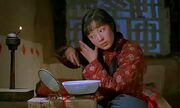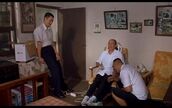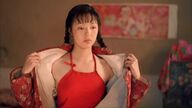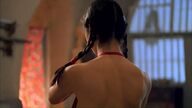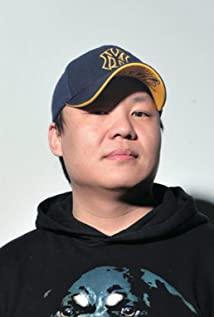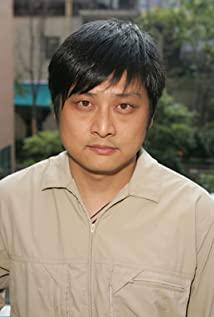After the 1990s, a new generation of directors was born in the Chinese film industry. Different from the nationalized narrative of the fifth generation, the new generation of directors incorporated their own life experiences into the films. It shows people's living conditions and spiritual world at that time. After the filming of his hometown trilogy, Jia Zhangke still aimed his camera at the lower classes, expressing the survival and pursuit, disappointment and struggle of ordinary people in the great changes of society in a style of extreme realism. Lu Chuan, who has always regarded himself as an elite consciousness in "Guns" and "Kekexili", has extended his lens to history. After the release of "Nanjing Nanjing", it has been controversial; Zhang Yang is also a representative of the new generation of directors.
Zhang Yang graduated from the Directing Department of the Central Academy of Drama in 1995. Unlike Zhang Yuan, Jia Zhangke, Wang Xiaoshuai and others, starting from his 1997 Virgo "Spicy Love", Zhang Yang closely combined the film's artistry with commercial elements, not only won The audience's word of mouth, and won the box office. After that, Zhang Yang successively filmed "Bath", "Yesterday", "Sunflower", "Returning to the Roots of Fallen Leaves" and "Unmanned Driving". The "Bath" filmed in 1999 is one of the representative works.
"Bath" is a typical traditional Chinese family ethics drama. The film focuses on the emotional changes of the father and son and the conflict between the old and new cultures. The changes of the times have brought about the renewal of social concepts. The film centers on a bathhouse that is about to be demolished in Beijing, and revolves around the emotions of the two generations living here. In the slow stretch, I completed a reflection on the current collision of different cultures. Profound themes, delicate emotional portrayals, strong character creation, and the use of a series of symbolic techniques are the keys to the film's success.
The film takes a bathhouse that is about to be demolished in Beijing as the main scene. Surrounding the bathhouse, there are three old Liu and his son and the neighbors who come to bathe here. In the video, we can see that the bathhouse is not just a place for people to take a bath. Old Wu and another old man came here to fight crickets and relieve their boredom. Zhang Zhenghao and his wife quarreled and came here to take refuge, and Miao Zhuang could sing under the tap. In "My Sun", the slick He Zheng also came here to hide his debts. In addition, the bathhouse is where the whole meaning of life for Lao Liu and Erming lies. Soon after the film started, a series of accumulated montages were used to explain the environment of the bathhouse, where people rested, took a bath, cupped, read newspapers, listened to the radio, fought crickets, played chess, and various discussions that came from it. Under the background music, you can see the harmony between people and the important role of the bathhouse in their hearts. Like the cinema in "Paradise Cinema", the bathhouse has become a space for people's entertainment and rest. As a collective activity scene, the bathhouse is also nostalgic for many people.
The film focuses on the emotional changes of the father and son. Lao Liu and Er Ming understand each other in life and cooperate tacitly in their work; Daming and his father have a estrangement at the beginning, and Daming gradually understands his father; after his father's death, Daming will understand his father. Transfer to Erming. The film creates an image of a traditional Chinese father for the audience, just like the plaque that says "Shanxi is like water" when the film was demolished at the end of the film. Lao Liu carefully manages the bathhouse, caring for his customers and his love for his son. The philosophy of life is revealed. To a certain extent, the public bathhouse run by my father has become a part of traditional culture, and my father, who has worked hard, has become a guardian of traditional culture. Daming has worked in Shenzhen for many years and has not returned home. Influenced by the city culture, Daming just returned home in a suit and leather shoes, taking a shower; in the process of gradually understanding his father, Daming understood his father and the bathhouse culture, so he put on Working clothes, taking a bath, and rubbing the backs of guests have gradually returned to traditional culture. Interestingly, the director set Erming as a fool. This fool-like character lives with his father and is naturally deeply influenced by traditional culture; but Erming likes to wear Daming's suits, and he likes to wear a suit with "My Sun". Miao Zhuang became a good friend. At the end of the film, Erming also sang "My Sun" in the bathhouse. It can be seen that Erming is willing to accept the new culture.
In order to express the theme, in addition to the father and son, the film also focused on creating some other characters. The old Wu who fights crickets, the old man who often falls asleep in the bath, and the old man who plays chess, just like Lao Liu, they have become the guardians of traditional culture and are afraid of the new urban culture. Urban changes will lead to the death of crickets. It will also lead to their incompatibility with life. He Zheng, who is glib and dreaming of making a fortune all day, Zhang Zhenghao's wife who chases a thief naked for a gold necklace, Miao Zhuang who often sings "My Sun" in the bathroom, and who yearns for the new life brought about by urban construction. Zhang Zhenghao, the new culture brought about by social change is reflected in them one by one. After his father died, Erming sang "My Sun" at the end of the film, thus completing the grafting of "Father" and "My Sun".
In order to sublimate the theme of the film, the director inserted episodes at both ends, namely the lack of water in Shaanxi and the holy lake in Tibet. There is a folk custom in Shaanxi that a girl should take a bath the night before she gets married. The bath here is not only to wash the body, but also to wash the soul, to wash away everything before, and to appear in a new image. On the other hand, Shaanxi is extremely short of water. In order to give their daughter a bath, the whole family has to replace the water with the only food they have, which also symbolizes the difficulty of "bathing". In order to take a bath for the last time before her death, grandma took her granddaughter on a difficult journey to the holy lake. The faith in life did not give up because of the difficult journey. The holy lake can not only clean people's bodies, but also human soul. As a result, bathing has been transformed from a daily activity into a national ritual, and the visible cleansing of the body has become an invisible cleansing of the soul.
In terms of artistic technique, there are some symbolic details in the film. After the death of Lao Liu, a clip of the mother of the dung beetle dying in order to give birth to the next generation was played on the TV, and the praise of the mother of the dung beetle was transferred to the praise of the father. In the film, Miao Zhuang sang "My Sun" perfectly under the tap, but once out of the water, Miao Zhuang couldn't sing a word. "My Sun" is a song sung by Pavarotti, one of the three tenors in the world. It belongs to a typical Western culture, and it was introduced into China during the social transformation, a typical foreign culture. And without the watering of "water" in traditional culture, it is impossible to sing.
Different from Jia Zhangke and Wang Xiaoshuai's critical attitude towards the change of the times, Zhang Yang looks at the changes of the times with a moderate attitude. The relationship between the two generations centered on the bathhouse is changing subtly under the background of social change. New culture and old tradition Here they collide and then merge, depicting the changes of all living beings in China in the 1990s.
View more about Shower reviews



